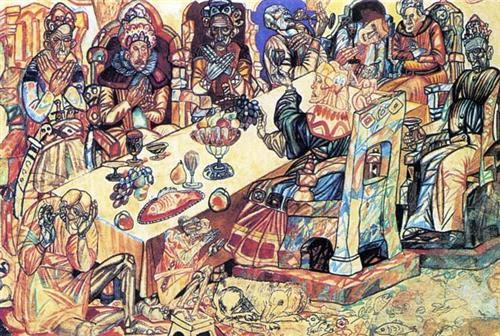| Icon of All Saints |
The Gospel for All Saints in this year of the lectionary consists in ‘The Beatitudes’, so called because they comprise a list in which each item begins with the word ‘Blessed’. Jesus tells his disciples that they are ‘blessed’ when they are persecuted, reviled and slandered. This is deeply counter-intuitive. It is also contrary to those Old Testament passages where the same word is usually translated ‘happy’ and refers to the emotional and material benefits that can be expected to flow from following God’s law. Here, it seems, Jesus is warning his followers that, in ordinary human terms at least, discipleship is likely to be bad for them.
So why would anyone go in for it? Sometimes the answer is thought to lie with post-mortem rewards
– benefits that we can expect in heaven, if only we persist. But to
follow Jesus for the sake of future benefits has the unwelcome
implication that there is nothing to be gained from faithful
discipleship now. A traditional hymn begins ‘My God I love thee not because I hope for heaven thereby’. That seems right.
 |
| Cloud of Witnesses |
None
of us wants to be persecuted or reviled. Being ‘meek’ or ‘poor in
spirit’ is not a goal we are inclined to set our children either. Yet at
All Saints we are invited to acknowledge this deep truth. Though
‘the world did not know it’, the lives of the poor and persecuted who
truly lived as ‘children of God’ were as blessed as we can ever hope our
own will be.





